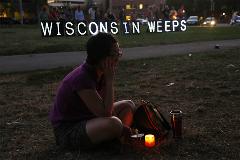We Are All Sikhs
 The day after the dreadful attacks of September 11, 2001, the French newspaper Le Monde published an editorial under the headline “Nous Sommes Tous Américains” (“We Are All Americans”). The headline was meant to convey not only that the French people stood behind Americans in our desperate hour, but also that they shared our vulnerability as well as our responsibility in an increasingly dangerous world. The editorial warned that modern technology enables suicidal warriors of all ideological stripes to do more damage than ever before, and the writer emphasized that all leaders need to act to discourage ordinary people from joining the murderous aims of warmongers like those who wreaked havoc on September 11th.
The day after the dreadful attacks of September 11, 2001, the French newspaper Le Monde published an editorial under the headline “Nous Sommes Tous Américains” (“We Are All Americans”). The headline was meant to convey not only that the French people stood behind Americans in our desperate hour, but also that they shared our vulnerability as well as our responsibility in an increasingly dangerous world. The editorial warned that modern technology enables suicidal warriors of all ideological stripes to do more damage than ever before, and the writer emphasized that all leaders need to act to discourage ordinary people from joining the murderous aims of warmongers like those who wreaked havoc on September 11th.
On Sunday, a smaller — but no less terrible — act of carnage occurred in Oak Creek, when a lone gunman killed six people and wounded three others before he was shot and killed by a police officer. Deaths by violence are always terrible, but this was also an attack against an entire religious community that resides among us.
I first began to learn about Sikhism a few years ago when one of my students, herself a Sikh, kindly gave me a book about her religion. The religion was founded in the 15th century and has over 20 million followers throughout the world. Sikhs believe in one God, Whom they believe is the same Supreme Being worshipped by followers of other religions. To quote from the website www.Sikhs.org, “Sikhism preaches that people of different races, religions, or sex are all equal in the eyes of God. It teaches the full equality of men and women.” The Sikh religion also emphasizes tolerance, honesty, community service, and sharing with those in need.
It is beyond ironic that members of a group devoted to peace, equality and tolerance were violently slaughtered in what the FBI is investigating as an act of domestic terrorism.

